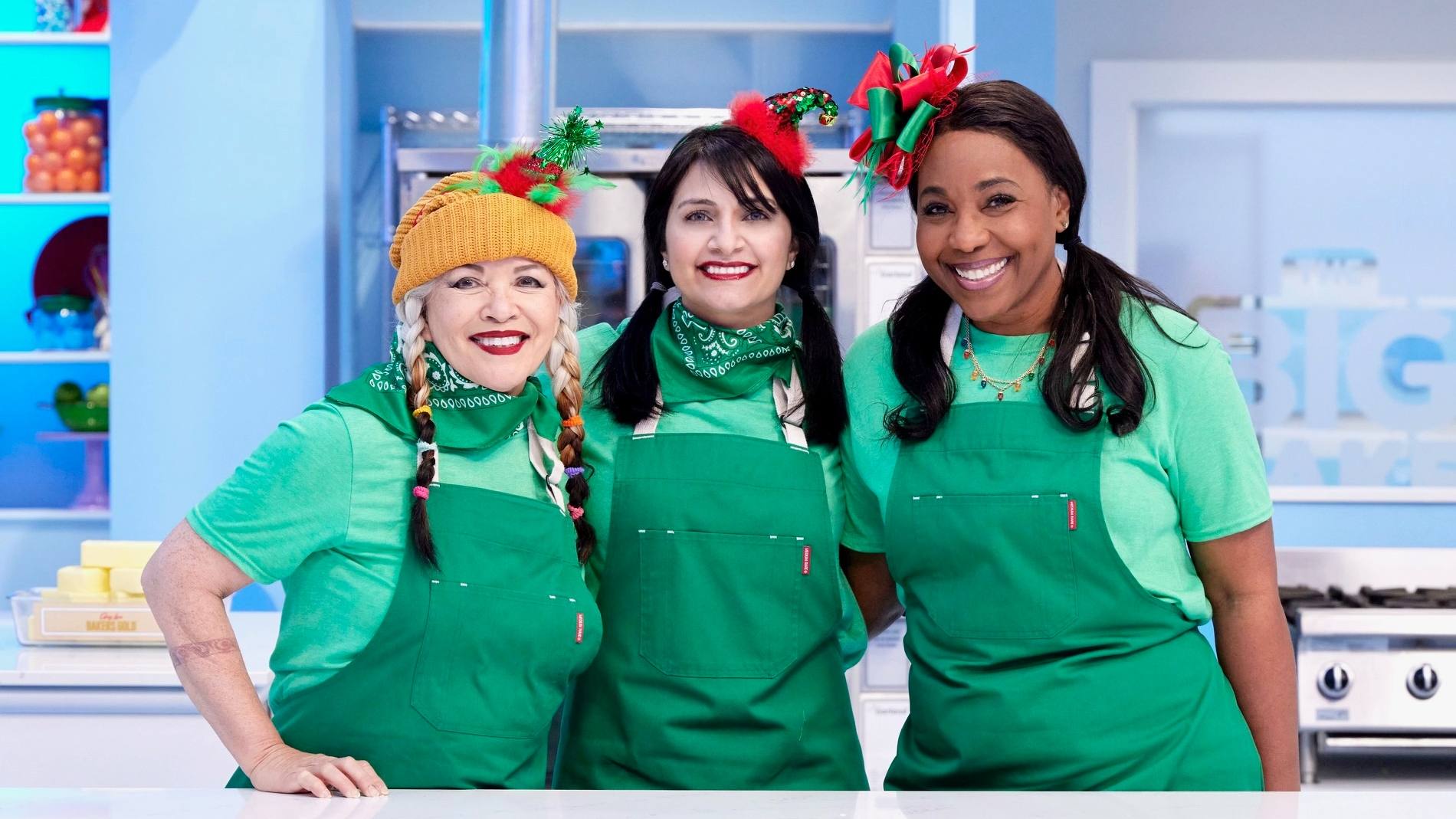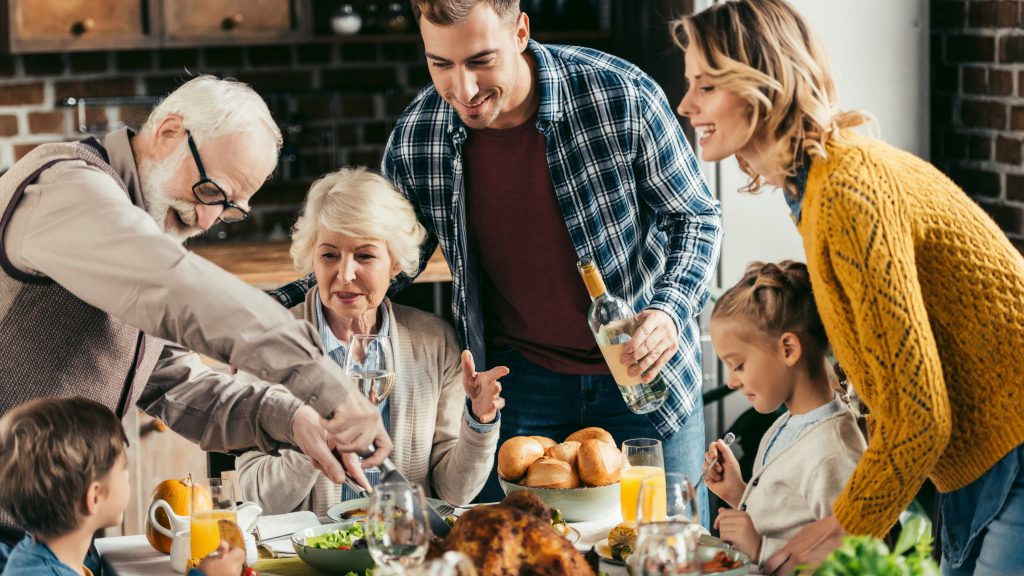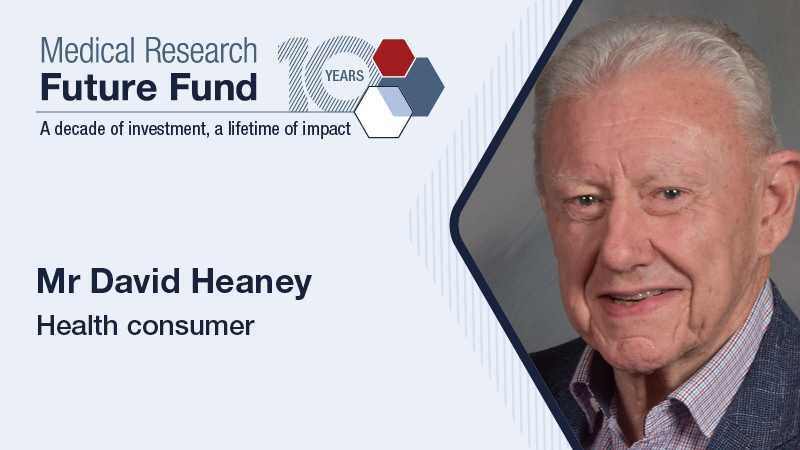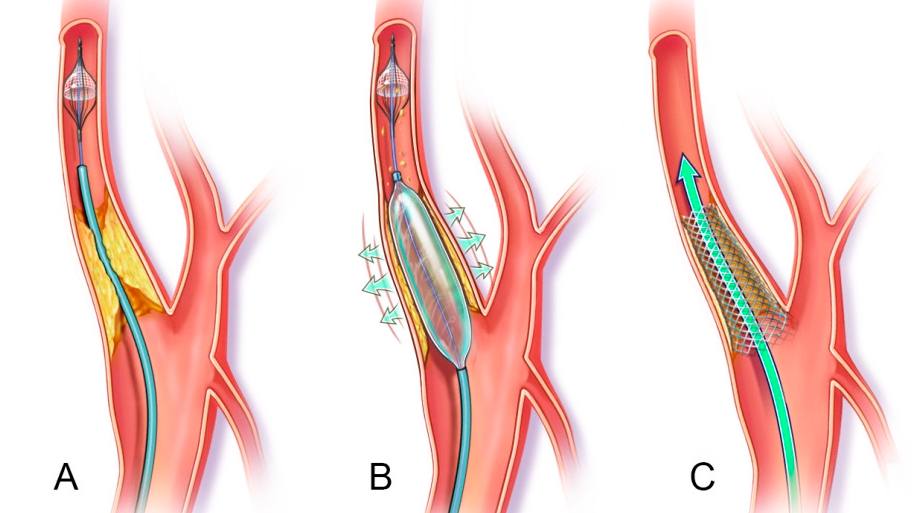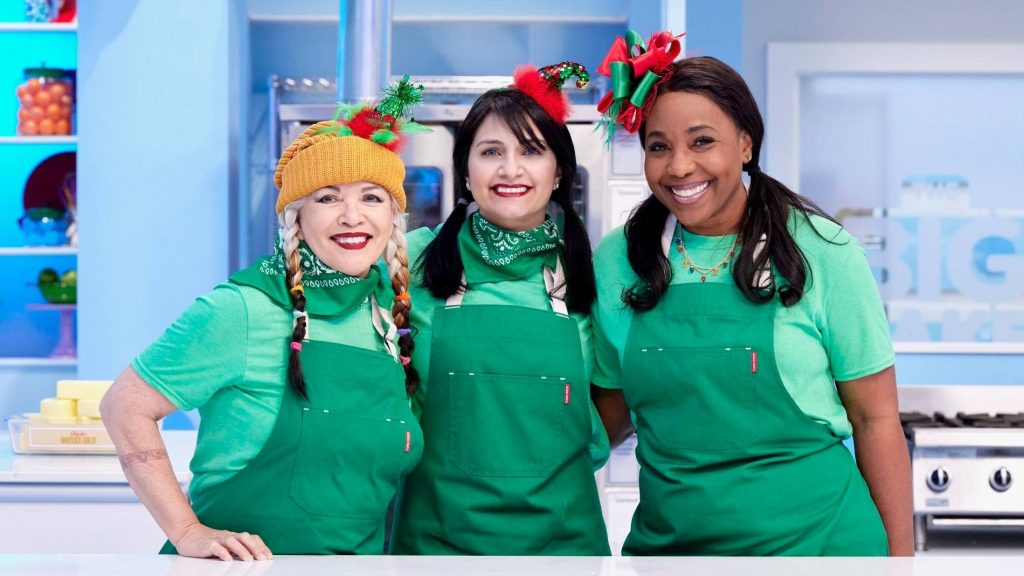
As a “Cake Wars” champion, Ann Alaboud knows that victory takes determination. While facing her biggest foe — stage 4 stomach cancer — she chose Mayo Clinic as her ally.
Although it was February, Ann Alaboud was decked out for Christmas — green apron, bright red lipstick and a sparkly elf hat. She was filming an episode of Food Network’s “The Big Bake: Holiday,” and her team had just constructed a towering Christmas tree cake.
As Ann walked off set, she suddenly veered left — her only warning before fainting.
“I woke up to the paramedics trying to figure out what was wrong with me,” recalls Ann.
They chalked it up to fatigue. But Ann had a deepening sense that something wasn’t right. For years, she’d been breaking out in hives, and she was perpetually exhausted. Not long after filming ended, she noticed a strange pinching sensation in her stomach.
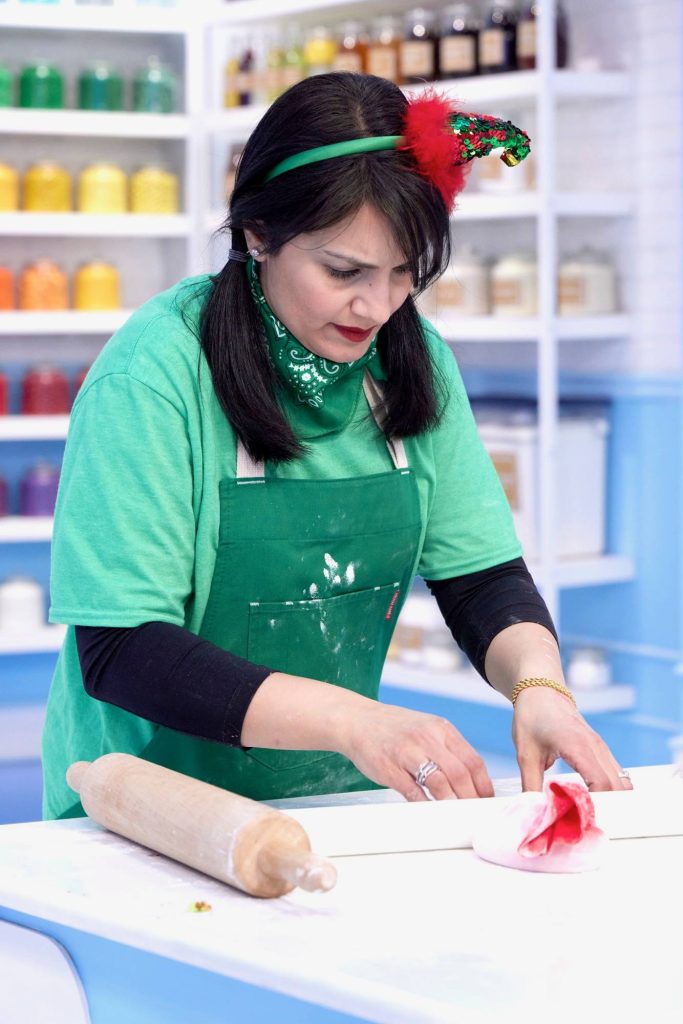
As a Minneapolis baker running two cupcake shops, it’d been easy to blame her symptoms on her busy lifestyle. After fainting, Ann knew she needed to seek care.
Despite multiple hospital visits, the only diagnosis she received was reflux.
When her 9-year-old daughter asked, “Mommy, do you have cancer?” Ann pushed harder for answers. On April 8, 2022, she woke up from an endoscopy to terrifying news. Her stomach was riddled with tumors. “They said it had already spread, and they couldn’t do anything,” she says.
A scan on her birthday confirmed the diagnosis — stage 4 stomach cancer.
“It was the shock of a lifetime. I’m a very health-conscious person,” says Ann. “My family was like, ‘What? You get stomach cancer?'”
From ambition to uncertainty
Before Ann was a baker, she was a business analyst. Then, while pregnant with her first child in 2011, she made a decorative cake for her baby shower. As she shaped a pair of sugary booties, she felt inspired to turn her unused culinary degree into a career.
Five years later, Ann had opened her first bakery and won Food Network’s “Cake Wars,” which led to “The Big Bake: Holiday” in 2022. Shortly after filming, she added another bakery location — just a week before finding out she had cancer.
“That’s when everything went downhill,” she says.
Instead of investing in her business, Ann found herself fighting for her life.
Moving to Mayo

Due to the severity of her disease, Ann’s local oncologist referred her to Mayo Clinic. While others deemed her stomach cancer inoperable, Dr. Travis Grotz, a surgical oncologist at Mayo Clinic in Rochester, Minnesota, still saw hope.
With gastric cancer spiking among younger people, his patients are often in the prime of life, facing late-stage disease with little chance of a cure through traditional treatments.
“For stage 4 gastric cancer, it’s usually indefinite chemotherapy,” he says. “But with research and a multidisciplinary team, I thought we could safely push the envelope.”
He designed an innovative care plan based on a clinical trial.
Back at home, Ann started chemotherapy and immunotherapy to shrink her tumors. She closed her bakeries as needed and traveled to Mayo for laparoscopic operations to track her progress.
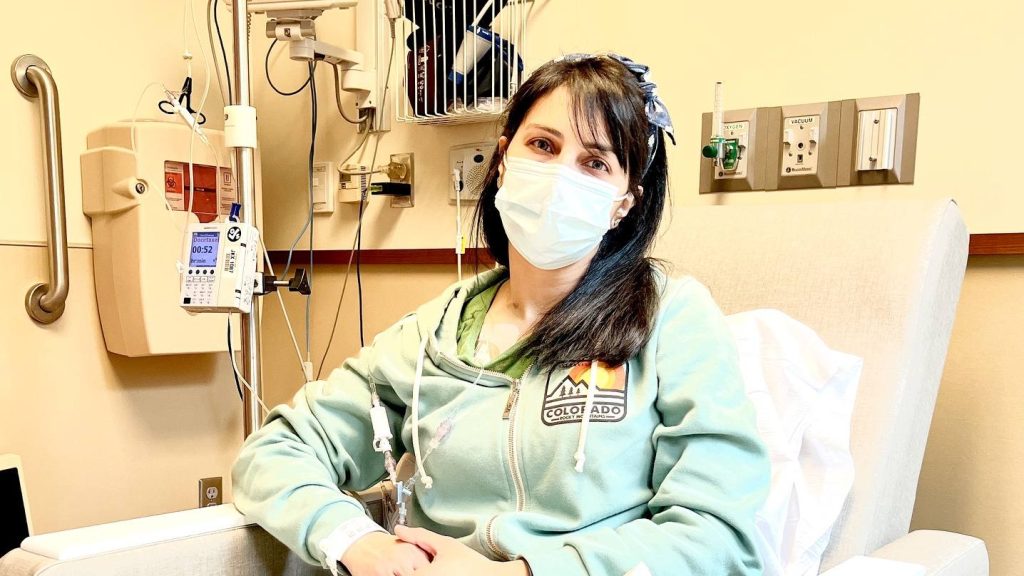
Often arriving with cupcakes for the care team, Ann also brought ample gratitude and positivity — even as her number of procedures climbed into the double digits.
She was willing to do whatever it took to have a good outcome,” says Mary Dorn, one of her nurses.
At times, Ann was tempted to waver. She recalls writing down account numbers to prepare her husband for her passing. “I started crying and said, ‘You know what? I’m going to get better. I can’t die young,'” she says. “So I just powered through one surgery after the next.”
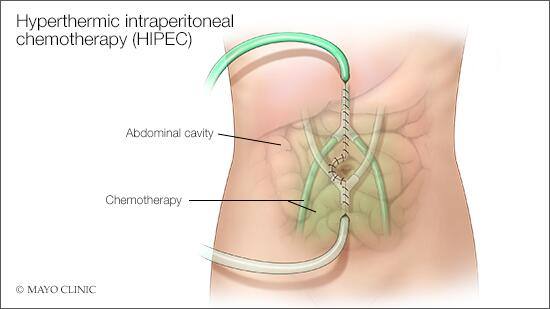
As one part of her innovative care plan, Dr. Grotz used hyperthermic intraperitoneal chemotherapy (HIPEC) to wash her abdomen with heated drugs, destroying lingering cancer cells. He also removed her stomach to prevent a relapse. It was during this surgery that Dr. Grotz made a startling discovery — Ann had new tumors in her esophagus.
She’d recently begun experiencing crushing chest pain during chemotherapy. Now Ann wondered: Had this been a warning sign? She’d thought treatment was nearly over, but the next day, she’d need surgery to remove her esophagus and add a feeding tube.
As Ann reeled, Dr. Grotz reassured her that long-term survival was still the goal. “I trusted everything he told me because everything he’d done so far was great,” says Ann. “He’s phenomenal.”
Restoring normalcy
After her esophageal surgery, the focus shifted to restoring Ann’s quality of life. Dr. Grotz wanted to give her back as much normalcy as possible. He turned to his colleagues for help.
Two surgeons — one thoracic, the other plastic — created a new esophagus from part of Ann’s small intestine, called the jejunum. After severing several attachments in her abdomen, they stretched it to her neck and connected it to her intact upper esophagus. Delicate microsurgery linked the intestinal blood vessels to those in her neck and upper chest.
The complex, several-hour surgery was a success.
Ann now had a working gastrointestinal tract, despite two missing organs, so she no longer needed the feeding tube that made her feel so sick. At last, Ann was able to eat again.
“This kind of care is not possible without collaboration between our teams,” says Dr. Samir Mardini, Ann’s plastic surgeon. “So many people — surgeons, nutritionists, physical therapists, nurses — worked together to create an outcome that would be hard to achieve any other way.”
During her two-week stay in Rochester, Ann witnessed this care in action. “All the doctors, all the nurses — everybody — went above and beyond,” she says. “I’ve never said, ‘Thank you,’ as many times as I did while at Mayo.”
Life beyond stomach cancer
Three years later, Ann remains cancer-free. Now a long-term survivor, she’s been able to hold onto the identities she cherishes most — mom, wife, baker, small-business owner.
With her new GI tract, there have been changes. Ann has to slowly eat small portions, often while standing to keep the food moving. It takes effort to remember to chew every bite thoroughly.
While this can be challenging, her most consistent feeling is gratitude.
Ann is thankful for the prayers and support of loved ones. The customers who contributed to fundraisers. The landlord who gave her grace. The Mayo care team who fought alongside her.
Most of all, she’s grateful to be alive.
“Winning ‘Cake Wars’ validated that I am a pastry chef. I can do anything I want, right?” Ann says. “But having cancer, thinking I wouldn’t make it, then coming out OK — that is more victorious than anything.”
The post Minneapolis baker, ‘Cake Wars’ winner, defeats ‘incurable’ stomach cancer appeared first on Mayo Clinic News Network.
